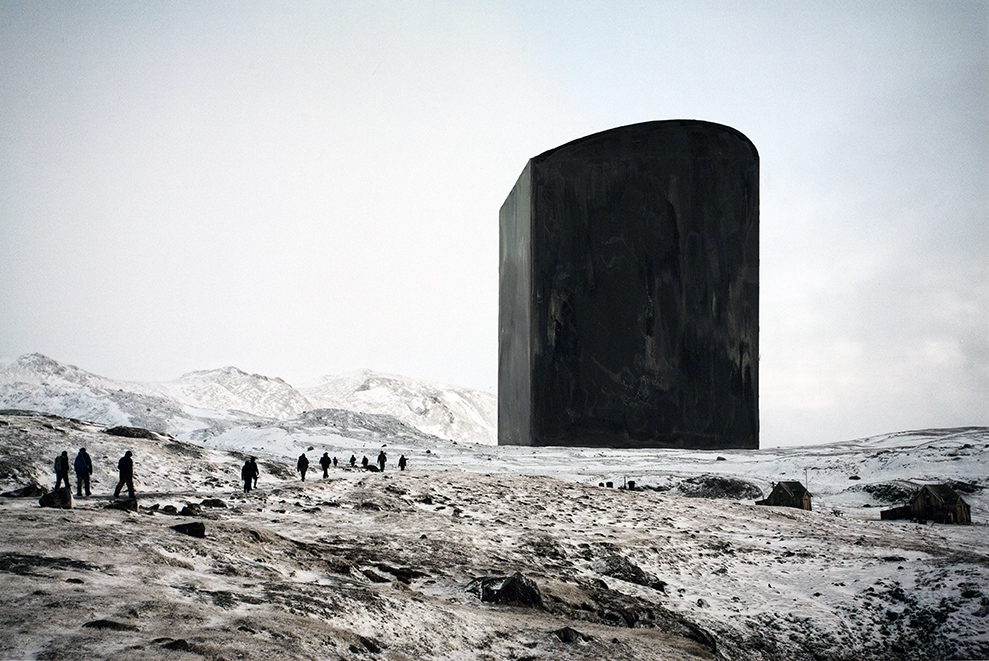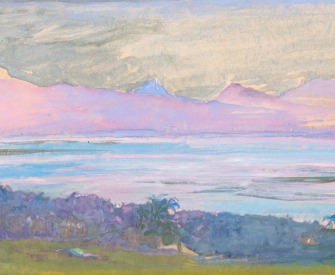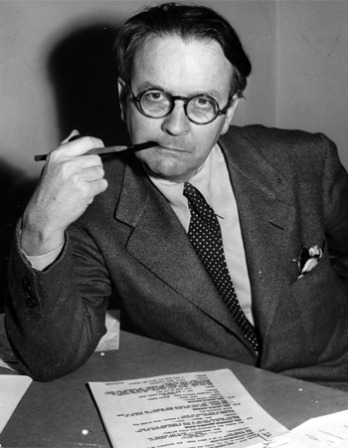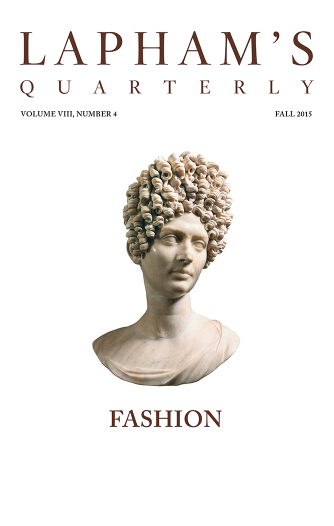When you name yourself, you always name another.
—Bertolt Brecht, 1926On Writing Home
Jamaica Kincaid experiences the shock of the new.
It was my first day. I had come the night before, a gray-black and cold night before—as it was expected to be in the middle of January, though I didn’t know that at the time—and I could not see anything clearly on the way in from the airport, even though there were lights everywhere. As we drove along, someone would single out to me a famous building, an important street, a park, a bridge that when built was thought to be a spectacle.
In a daydream I used to have, all these places were points of happiness to me; all these places were lifeboats to my small drowning soul, for I would imagine myself entering and leaving them, and just that—entering and leaving over and over again—would see me through a bad feeling I did not have a name for. I only knew it felt a little like sadness but heavier than that. Now that I saw these places, they looked ordinary, dirty, worn down by so many people entering and leaving them in real life, and it occurred to me that I could not be the only person in the world for whom they were a fixture of fantasy. It was not my first bout with the disappointment of reality and it would not be my last. The undergarments that I wore were all new, bought for my journey, and as I sat in the car, twisting this way and that to get a good view of the sights before me, I was reminded of how uncomfortable the new can make you feel.
I got into an elevator, something I had never done before, and then I was in an apartment and seated at a table, eating food just taken from a refrigerator. In the place I had just come from, I always lived in a house, and my house did not have a refrigerator in it. Everything I was experiencing—the ride in the elevator, being in an apartment, eating day-old food that had been stored in a refrigerator—was such a good idea that I could imagine I would grow used to it and like it very much, but at first it was all so new that I had to smile with my mouth turned down at the corners. I slept soundly that night, but it wasn’t because I was happy and comfortable—quite the opposite; it was because I didn’t want to take in anything else.
That morning, the morning of my first day, the morning that followed my first night, was a sunny morning. It was not the sort of bright sun-yellow making everything curl at the edges, almost in fright, that I was used to, but a pale-yellow sun, as if the sun had grown weak from trying too hard to shine; but still it was sunny, and that was nice and made me miss my home less. And so, seeing the sun, I got up and put on a dress, a gay dress made out of madras cloth—the same sort of dress that I would wear if I were at home and setting out for a day in the country. It was all wrong. The sun was shining but the air was cold. It was the middle of January, after all. But I did not know that the sun could shine and the air remain cold; no one had ever told me. What a feeling that was! How can I explain? Something I had always known—the way I knew my skin was the color brown of a nut rubbed repeatedly with a soft cloth, or the way I knew my own name—something I took completely for granted, “the sun is shining, the air is warm,” was not so. I was no longer in a tropical zone, and this realization now entered my life like a flow of water dividing formerly dry and solid ground, creating two banks, one of which was my past—so familiar and predictable that even my unhappiness then made me happy now just to think of it—the other my future, a gray blank, an overcast seascape on which rain was falling and no boats were in sight. I was no longer in a tropical zone and I felt cold inside and out, the first time such a sensation had come over me.
In books I had read—from time to time, when the plot called for it—someone would suffer from homesickness. A person would leave a not very nice situation and go somewhere else, somewhere a lot better, and then long to go back where it was not very nice. How impatient I would become with such a person, for I would feel that I was in a not very nice situation myself, and how I wanted to go somewhere else. But now I, too, felt that I wanted to be back where I came from. I understood it, I knew where I stood there. If I had had to draw a picture of my future then, it would have been a large gray patch surrounded by black, blacker, blackest.

Black Box, from the series Arctic Wonderland, by Sarah Anne Johnson, 2010. Chromogenic print, photospotting ink, acrylic ink, gouache, and India ink, 28 x 42 inches, edition of 3. © Sarah Anne Johnson, courtesy Julie Saul Gallery, New York.
What a surprise this was to me, that I longed to be back in the place that I came from, that I longed to sleep in a bed I had outgrown, that I longed to be with people whose smallest, most natural gesture would call up in me such a rage that I longed to see them all dead at my feet. Oh, I had imagined that with my one swift act—leaving home and coming to this new place—I could leave behind me, as if it were an old garment never to be worn again, my sad thoughts, my sad feelings, and my discontent with life in general as it presented itself to me. In the past, the thought of being in my present situation had been a comfort, but now I did not even have this to look forward to, and so I lay down on my bed and dreamt I was eating a bowl of pink mullet and green figs cooked in coconut milk, and it had been cooked by my grandmother, which was why the taste of it pleased me so, for she was the person I liked best in all the world and those were the things I liked best to eat also.
The room in which I lay was a small room just off the kitchen—the maid’s room. I was used to a small room, but this was a different sort of small room. The ceiling was very high and the walls went all the way up to the ceiling, enclosing the room like a box—a box in which cargo traveling a long way should be shipped. But I was not cargo. I was only an unhappy young woman living in a maid’s room, and I was not even the maid. I was the young girl who watches over the children and goes to school at night. How nice everyone was to me, though, saying that I should regard them as my family and make myself at home. I believed them to be sincere, for I knew that such a thing would not be said to a member of their real family. After all, aren’t family the people who become the millstone around your life’s neck? On the last day I spent at home, my cousin—a girl I had known all my life, an unpleasant person even before her parents forced her to become a Seventh-day Adventist—made a farewell present to me of her own Bible, and with it she made a little speech about God and goodness and blessings. Now it sat before me on a dresser, and I remembered how when we were children we would sit under my house and terrify and torment each other by reading out loud passages from the Book of Revelation, and I wondered if ever in my whole life a day would go by when these people I had left behind, my own family, would not appear before me in one way or another.\
There was also a small radio on this dresser, and I had turned it on. At that moment, almost as if to sum up how I was feeling, a song came on, some of the words of which were “Put yourself in my place, if only for a day; see if you can stand the awful emptiness inside.” I sang these words to myself over and over, as if they were a lullaby, and I fell asleep again. I dreamt then that I was holding in my hands one of my old cotton-flannel nightgowns, and it was printed with beautiful scenes of children playing with Christmas-tree decorations. The scenes printed on my nightgown were so real that I could actually hear the children laughing. I felt compelled to know where this nightgown came from, and I started to examine it furiously, looking for the label. I found it just where a label usually is, in the back, and it read made in australia. I was awakened from this dream by the actual maid, a woman who had let me know right away, on meeting me, that she did not like me, and gave as her reason the way I talked. I thought it was because of something else, but I did not know what. As I opened my eyes, the word “Australia” stood between our faces, and I remembered then that Australia was settled as a prison for bad people, people so bad that they couldn’t be put in a prison in their own country.
My waking hours soon took on a routine. I walked four small girls to their school, and when they returned at midday I gave them a lunch of soup from a tin, and sandwiches. In the afternoon, I read to them and played with them. When they were away, I studied my books, and at night I went to school. I was unhappy. I looked at a map. An ocean stood between me and the place I came from, but would it have made a difference if it had been a teacup of water? I could not go back.
Outside, always it was cold, and everyone said that it was the coldest winter they had ever experienced; but the way they said it made me think they said this every time winter came around. And I couldn’t blame them for not really remembering each year how unpleasant, how unfriendly winter weather could be. The trees with their bare, still limbs looked dead, and as if someone had just placed them there and planned to come back and get them later; all the windows of the houses were shut tight, the way windows are shut up when a house will be empty for a long time; when people walked on the streets they did it quickly, as if they were doing something behind someone’s back, as if they didn’t want to draw attention to themselves, as if being out in the cold too long would cause them to dissolve. How I longed to see someone lingering on a corner, trying to draw my attention to him, trying to engage me in conversation, someone complaining to himself in a voice I could overhear about a God whose love and mercy fell on the just and the unjust.
I wrote home to say how lovely everything was, and I used flourishing words and phrases, as if I were living life in a greeting card—the kind that has a satin ribbon on it, and quilted hearts and roses, and is expected to be so precious to the person receiving it that the manufacturer has placed a leaf of plastic on the front to protect it. Everyone I wrote to said how nice it was to hear from me, how nice it was to know that I was doing well, that I was very much missed, and that they couldn’t wait until the day came when I returned.
From Lucy by Jamaica Kincaid. Copyright © 1990 by Jamaica Kincaid. Used with permission of Farrar, Straus and Giroux LLC. Caution: Users are warned that this work is protected under copyright laws and downloading is strictly prohibited. The right to reproduce or transfer the work via any medium must be secured with Farrar, Straus and Giroux, LLC.

Jamaica Kincaid
From Lucy. Born Elaine Potter Richardson in Antigua, the author recalled about growing up, “I was always being accused of being rude, because I gave some back chat. I moved very slowly. I was never where I should be. I wasn’t really angry yet. I was just incredibly unhappy.” She came to New York City at the age of seventeen, working as an au pair and studying photography before changing her name in 1973 and three years later joining The New Yorker as a staff writer, where she remained until 1995. Kincaid’s latest novel, See Now Then, was published in 2013.




